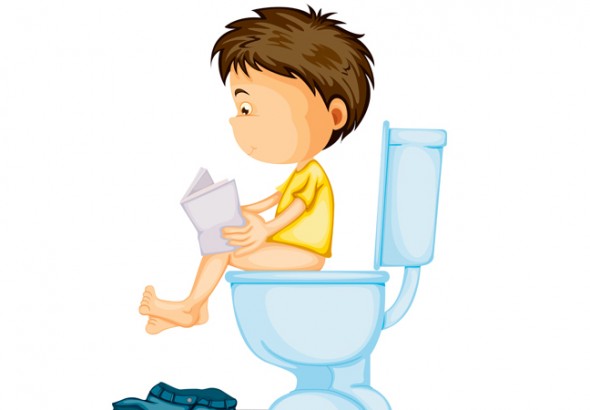By, Shadan Jameela
Diarrhea is a condition that comes and goes. It can happen to people of all ages, but it is most prevalent among young children.
Most of the time, diarrhea episodes pass without any treatment. However, that doesn’t change the fact that it can still be potentially dangerous, especially when left unchecked. People with diarrhea are still at risk of dehydration.
Have a toddler with diarrhea? This article can help you understand the possible underlying causes of this condition and how to manage it better to ease your little one’s discomfort.
Why Do Children Experience Diarrhea? 4 Common Causes
Diarrhea is the body’s way of getting rid of germs in the digestive tract the same way coughing is a reflex that expels foreign irritants from the throat. Often, diarrhea can last between two days and one week, depending on what caused it.
Other symptoms that may come with this condition are:
- Fever
- Nausea
- Abdominal cramps
- Vomiting
As mentioned earlier, children experience diarrhea more often compared to adults. This is because they are more susceptible to infection from improper and irregular hygiene. They also tend to be more careless about what they eat or what they put in their mouths.
This might explain the four most common reasons why children get diarrhea:
- Infection
Most diarrhea cases are caused by bacterial or viral infections. Often, this is due to the rotavirus or salmonella, a bacteria that naturally occurs in the intestinal tracts of humans and animals. In rare instances, diarrhea can also be due to parasites like giardia, which are commonly found in soil surfaces and contaminated water.
- Food Allergies or Too Much Fruit Juice
Another possible cause of diarrhea in children is food allergies. Too much fruit juice and other fluids with high sorbitol and fructose content can also cause loose stools.
- Food Poisoning
For diarrhea due to food poisoning, one symptom that may accompany frequent stools is frequent vomiting. Like infections, it is also caused by germs, which means you can use the same methods to manage it. Of course, you should always consult a doctor if diarrhea lasts for more than 24 hours.
- Certain Medicine
Specific medications like antibiotics or laxatives can also cause children to experience diarrhea.
Laxatives are meant to help ease constipation. It promotes smoother, more fluid bowel movement, so frequent defecation is to be expected.
Diarrhea is also a typical side effect of some antibiotics. In this case, your doctor might recommend a change in medicine, a reduced dose, a change in your child’s diet, or probiotics.
3 Tips in Easing Children’s Diarrhea
Toddler diarrhea doesn’t usually require pharmaceutical treatment since the patient is still considered healthy. Even so, diarrhea medicine specially made for children is readily available and can be used to alleviate the symptoms should these become too uncomfortable for your little one.
Aside from that, there are three more things you can do to make your little one feel better, such as:
- Monitor Your Child’s Meals
Keeping track of your child’s meals is one way to determine the cause of diarrhea and ensure that he recovers faster.
If possible, keep a food diary where you can relate the frequency, amount, and timing of your child’s diarrhea. This will help the physician rule out what may be the causes of the condition like allergies or food intolerance.
Also, certain foods and beverages must be avoided when a child has diarrhea, including:
- Dairy products, including protein drinks that are milk-based
- Processed foods
- Spicy foods
- Fried, fatty, and greasy foods
- Citrus fruits and their juices
- Alcohol
- Soda, coffee and other carbonated or caffeinated beverages
Alternatively, food and drinks that are safe to consume include:
- Clear broths
- Cooked cereal
- Soda crackers
- Applesauce and apple juice
- Keep Your Child Well-Hydrated
Hydration is crucial when a child has diarrhea. For toddlers, you can offer both milk and water. However, if he refuses to eat solid foods, it might be best to give him milk only as it contains nutrients like sodium and potassium that are necessary for rehydration.
While most toddlers won’t need oral glucose-electrolyte supplementation, you should still stock up on oral rehydration solution (ORS) packets just in case. For infants, extra servings of breastmilk or infant formula should suffice.
To be sure, consult a pediatrician to determine how much fluids your child requires. He might also be able to help you with the details of how and when you should give them to your little one.
- Offer Probiotics
These living microorganisms thrive within the gut and are more popularly known as “good bacteria.” While further studies are needed to support its effects on patients with diarrhea, probiotics have been found to help ease its symptoms in children.
In fact, some doctors recommend probiotics for kids who experience diarrhea due to antibiotic intake. Since antibiotic medications fight bad bacteria, some of them – particularly broad-spectrum antibiotics – may affect an individual’s natural gut flora that causes an imbalance in good and bad bacteria.
If you don’t know where to buy probiotics, you can try asking your local pharmacy about it. It is widely available in pill or powder form and can be bought over-the-counter worldwide.
Ease Toddler’s Diarrhea Safely
Diarrhea is a common occurrence in a person’s life. This condition manifests itself during different stages of life but is most prevalent during childhood.
To ease your toddler’s diarrhea safely, learn all about the different causes and how to manage them the right way with the help of this article.
.
.
.

No Comments